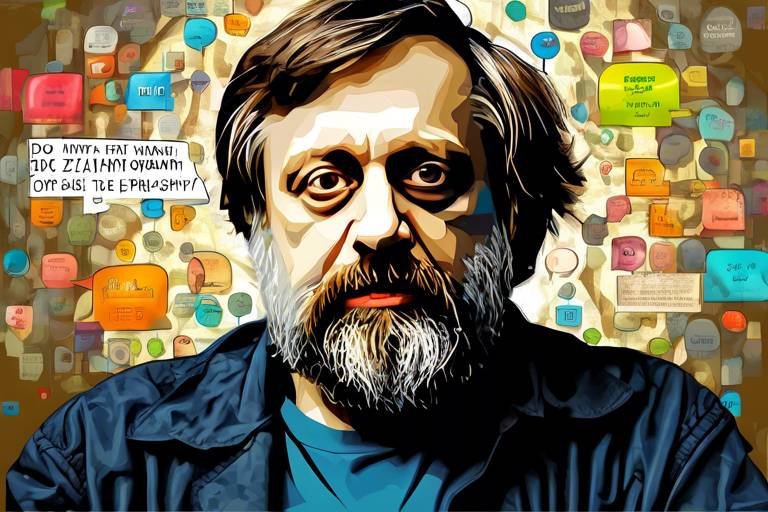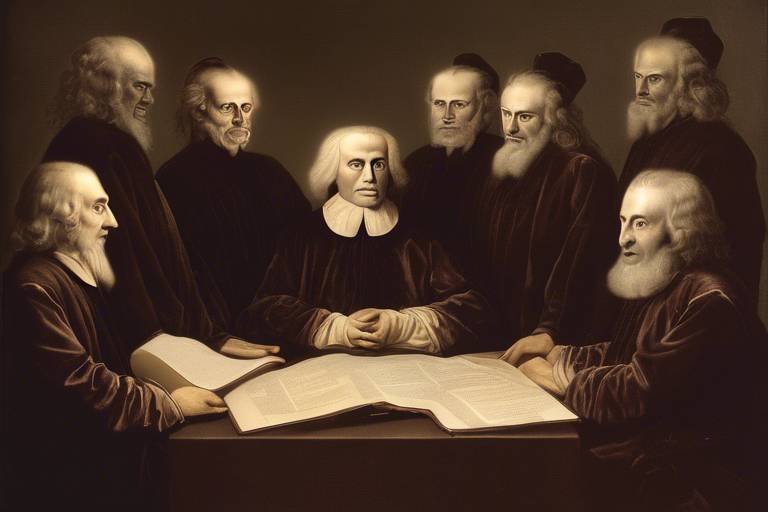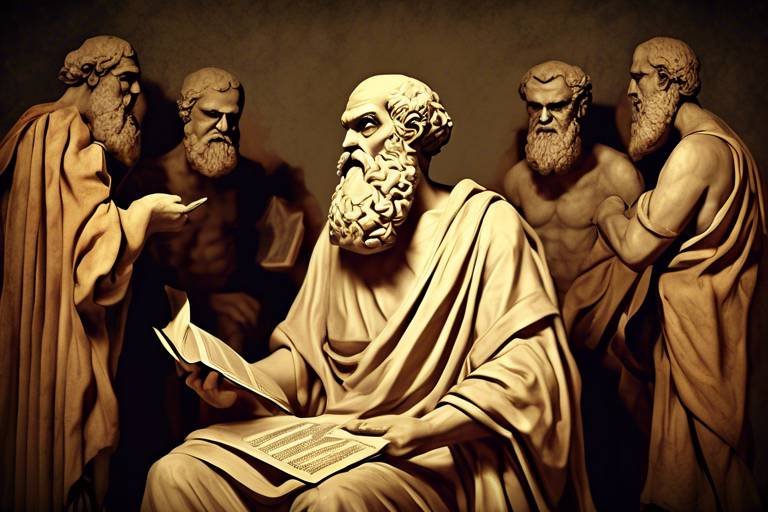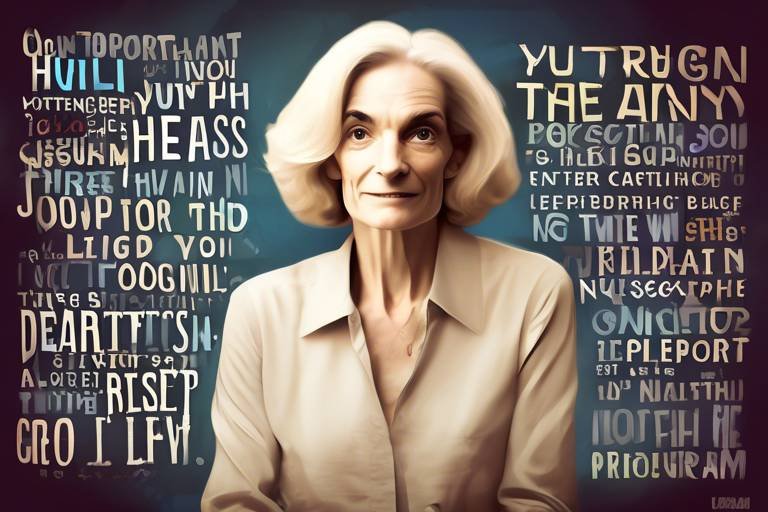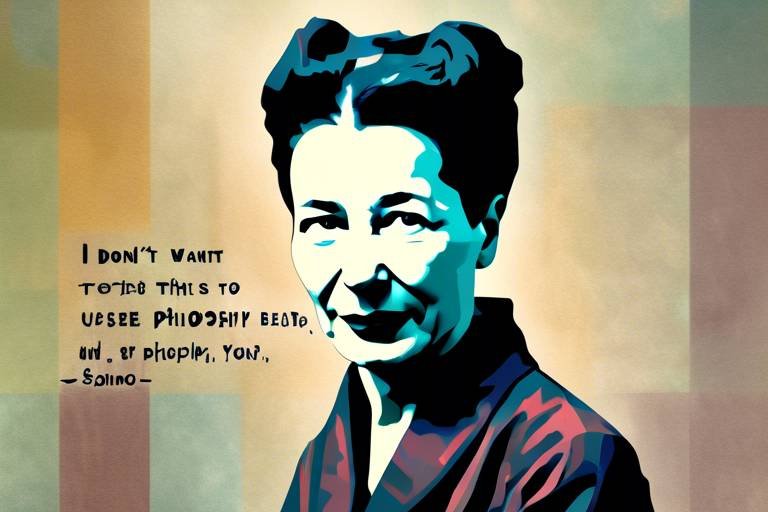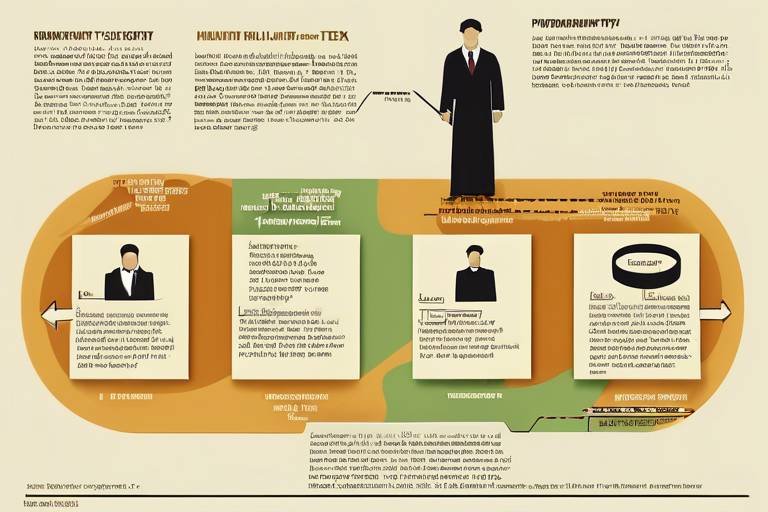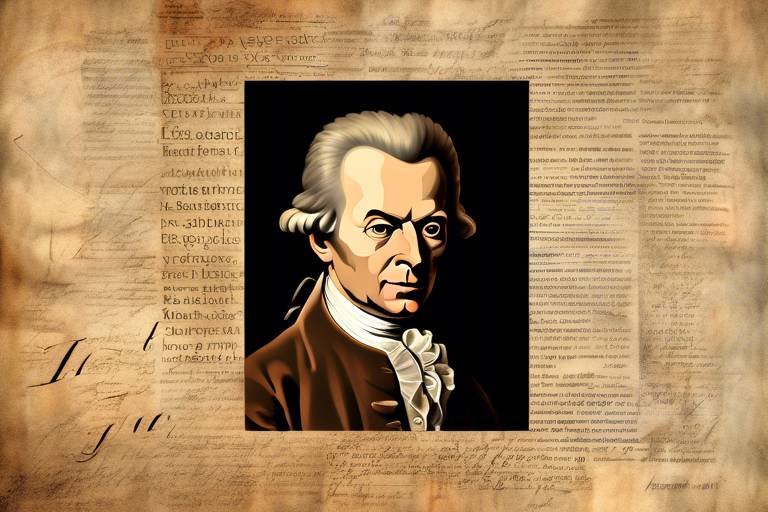Exploring Intersections: Philosophy and Quantum Physics
Welcome to a journey that intertwines the abstract realms of philosophy and the enigmatic world of quantum physics. At first glance, these two fields might seem worlds apart—one steeped in metaphysical inquiry and the other grounded in scientific experimentation. But as we dig deeper, we discover a rich tapestry of ideas where philosophical questions about existence and reality collide with the perplexing phenomena of quantum mechanics. It’s almost like trying to solve a riddle where the answers are hidden in plain sight, waiting for a keen observer to unveil them. So, grab your thinking cap, and let’s dive into this captivating intersection!
The birth of quantum mechanics was not merely a scientific revolution; it was a philosophical awakening. Early pioneers like Max Planck and Albert Einstein didn't just formulate equations; they challenged the very fabric of reality. Planck introduced the concept of quantization, suggesting that energy exists in discrete units, or "quanta." This idea was revolutionary and raised profound questions: What does it mean for something to be "quantized"? If energy is not continuous, how does that affect our understanding of the universe?
Moreover, Einstein's famous equation, Emc², hinted at a deeper connection between mass and energy, prompting thinkers to reconsider the nature of existence itself. It was as if the universe was saying, “I’m not what you think I am!” This shift in perspective laid the groundwork for a philosophical exploration of reality that continues to this day. As we analyze these foundational ideas, we can see how they serve as a springboard for modern discussions about the implications of quantum mechanics on our understanding of existence.
Now, let’s delve into how quantum mechanics challenges our traditional notions of reality. At the heart of quantum physics lies the concept of superposition, where particles exist in multiple states simultaneously until observed. Imagine a spinning coin—while it’s in the air, it’s both heads and tails at the same time. It’s only when it lands that we see a definitive outcome. This notion raises a tantalizing question: Does reality exist independently of our observation, or does it require a conscious observer to bring it into being?
Another mind-boggling concept is entanglement, where particles become interconnected, such that the state of one instantly influences the state of another, regardless of distance. This phenomenon challenges our understanding of locality and causation, leading to philosophical debates about the nature of connection and the fundamental structure of reality. Are we all part of a vast, interconnected web of existence, or do we exist in isolated bubbles of reality? These questions are not just academic; they touch the very essence of our understanding of the universe.
One of the most intriguing aspects of quantum physics is the observer effect. This principle suggests that the act of measurement alters the state of a quantum system. For instance, when we measure the position of an electron, we change its momentum, and vice versa. This leads us to ponder: What does it mean to know something? If our observations fundamentally alter the reality we are trying to understand, can we ever claim to have objective knowledge? It’s like trying to photograph a shadow; the moment you shine a light on it, the shadow changes shape.
The implications of this observer effect extend far beyond physics. It invites us to reconsider the nature of knowledge itself. If our perceptions shape reality, can we trust our senses? Philosophers have long debated the nature of knowledge, and quantum mechanics adds another layer to this discussion. It suggests that perhaps reality is not a fixed entity, but rather a fluid interplay between observer and observed.
Furthermore, the contrast between classical determinism and quantum indeterminism fuels philosophical discussions about free will and causality. In classical physics, if you know the initial conditions of a system, you can predict its future states with certainty. However, quantum mechanics introduces an element of randomness and unpredictability. This shift has profound implications for our understanding of free will: If the universe is fundamentally indeterminate, what does that mean for our choices and actions?
As we explore various interpretations of quantum mechanics, such as the Copenhagen interpretation and the many-worlds theory, we find that each perspective offers unique philosophical insights. The Copenhagen interpretation posits that reality is a product of our observations, while the many-worlds theory suggests that all possible outcomes exist in parallel universes. These interpretations challenge us to rethink our understanding of reality and existence, much like a kaleidoscope that reveals new patterns with every twist.
The interplay between the philosophy of science and quantum theory is a fascinating arena of exploration. Philosophical frameworks shape scientific inquiry, guiding how we interpret quantum phenomena. This relationship raises essential questions: How do we define scientific progress? What role do philosophical assumptions play in shaping our understanding of the natural world? As we navigate this terrain, we uncover the intricate connections between thought and observation.
In examining the epistemological questions raised by quantum physics, we confront the nature of knowledge itself. How is knowledge constructed in the context of quantum theories? Are our scientific models mere approximations of reality, or do they reveal deeper truths? These inquiries challenge the foundations of scientific realism and invite us to reflect on the limits of human understanding.
Finally, as we stand on the brink of advancements in quantum technology—such as quantum computing and cryptography—we must also consider the ethical implications. What responsibilities do we bear as we harness the power of quantum mechanics? How can we ensure that these technologies are used for the greater good? The intersection of ethics and quantum technology is a crucial conversation that demands our attention.
- What is quantum mechanics? Quantum mechanics is a fundamental theory in physics that describes the behavior of matter and energy at the smallest scales, such as atoms and subatomic particles.
- How does philosophy relate to quantum physics? Philosophy provides a framework for exploring the implications and interpretations of quantum mechanics, challenging our understanding of reality, knowledge, and existence.
- What is the observer effect? The observer effect refers to the phenomenon where the act of measuring a quantum system influences its state, raising questions about objectivity and knowledge.
- What are the ethical considerations of quantum technology? Ethical considerations include the potential societal impacts of advancements in quantum computing and cryptography, as well as the moral responsibilities of scientists and technologists.

The Philosophical Foundations of Quantum Mechanics
When we dive into the realm of quantum mechanics, we quickly realize that it’s not just a playground for physicists; it’s a rich tapestry woven with philosophical threads. The early 20th century was a pivotal time for both philosophy and physics, as thinkers began to grapple with ideas that were not only revolutionary but also deeply perplexing. Key figures such as Max Planck, Albert Einstein, and Niels Bohr were not just scientists; they were also philosophers in their own right, questioning the very nature of reality and existence.
Max Planck, often considered the father of quantum theory, introduced the idea of quantization of energy, which posed significant challenges to classical physics. His assertion that energy exists in discrete packets, or quanta, forced philosophers to reconsider long-held beliefs about the continuity of nature. This shift laid the groundwork for a new way of thinking, one that embraced uncertainty and the probabilistic nature of reality.
Then comes Albert Einstein, who, despite his pivotal role in the development of quantum theory, famously struggled with its implications. His famous quote, “God does not play dice with the universe,” reflects his discomfort with the inherent randomness that quantum mechanics introduced. This tension between determinism and randomness sparked philosophical debates that continue to this day. Was the universe truly governed by chance, or was there an underlying order that we simply had yet to understand?
Niels Bohr, on the other hand, embraced the strange new world of quantum mechanics. His principle of complementarity suggested that objects could exhibit particle-like or wave-like behavior depending on how they were observed. This idea not only revolutionized physics but also raised profound philosophical questions about the role of the observer in defining reality. If reality can change based on observation, what does that mean for our understanding of existence itself?
To comprehend the philosophical foundations of quantum mechanics, it’s essential to consider the following key concepts:
- Quantization: The idea that energy is not continuous but rather comes in discrete units.
- Complementarity: The notion that different experimental setups can reveal different aspects of a quantum system.
- Observer Effect: The principle that the act of measurement affects the system being observed.
These concepts challenge the classical worldview, which relied heavily on determinism and objective reality. Instead, quantum mechanics invites us to ponder a universe that is not only strange but also profoundly interconnected. This interconnectedness is beautifully illustrated in the phenomenon of quantum entanglement, where particles become linked in ways that defy classical explanations. The implications of such phenomena extend beyond physics, inviting philosophical inquiry into the nature of existence, knowledge, and reality itself.
In summary, the philosophical foundations of quantum mechanics are not just a footnote in the history of science; they are a cornerstone that shapes our understanding of the universe. As we continue to explore these ideas, we find ourselves at the intersection of science and philosophy, where questions about the nature of reality and our place within it become ever more pressing.
1. What are the main philosophical implications of quantum mechanics?
Quantum mechanics challenges traditional notions of reality, suggesting that observation plays a crucial role in defining the state of a system. This raises questions about objectivity, knowledge, and the nature of existence.
2. How did early philosophers influence quantum mechanics?
Early philosophers like Planck, Einstein, and Bohr laid the groundwork for quantum mechanics through their revolutionary ideas, prompting discussions about determinism, randomness, and the nature of reality.
3. What is the observer effect?
The observer effect refers to the phenomenon where the act of measurement affects the state of a quantum system, leading to questions about the role of the observer in defining reality.
4. How does quantum entanglement challenge classical physics?
Quantum entanglement illustrates a connection between particles that transcends classical explanations, suggesting a level of interconnectedness that challenges our understanding of separateness in the physical world.

Quantum Mechanics and Reality
When we dive into the world of quantum mechanics, we find ourselves standing at the edge of a profound philosophical abyss. It's like peering into a cosmic mirror that reflects not just the physical universe, but also the very nature of reality itself. The principles of quantum mechanics challenge our traditional notions of what is real and what isn't. Concepts such as superposition and entanglement force us to reconsider our understanding of existence and observation. Imagine a world where particles can exist in multiple states at once, only to 'choose' a state when observed. This isn't just science fiction; it's a reality that quantum physics presents to us.
At the heart of this exploration is the idea that reality is not as cut-and-dried as we once thought. In classical physics, we often operated under the assumption that objects had definite properties and states, independent of observation. However, quantum mechanics introduces a twist: the act of measurement itself can alter the state of a system. This brings us to the famous observer effect, which suggests that the mere act of observing a quantum system can fundamentally change its behavior. It's akin to a stage magician who performs a trick; as soon as you look closely, the illusion shatters, revealing the true nature of the trick.
The observer effect raises tantalizing questions about the nature of knowledge and objectivity. If our observations can change the outcome of an experiment, how can we claim to know anything for certain? This dilemma is at the core of many philosophical discussions surrounding quantum mechanics. Are we merely passive observers in a universe that exists independently of us, or are we active participants in shaping reality? This question leads us to consider the implications of measurement in quantum physics and how it challenges our previously held beliefs about the universe.
When we think about measurement in quantum mechanics, we must confront the philosophical ramifications it entails. The act of measurement is not just a technical procedure; it becomes a philosophical statement about reality itself. For instance, if a particle exists in a state of superposition until it is measured, does that mean it is 'real' only when we observe it? This idea can be unsettling, as it suggests that our perception plays a crucial role in defining the reality of the quantum world. The implications extend beyond physics and into the realms of metaphysics and epistemology, challenging us to rethink the very nature of existence and knowledge.
Another fascinating aspect of quantum mechanics is its challenge to the classical notion of determinism. In classical physics, the universe is like a well-oiled machine, where every action has a predictable reaction. However, quantum mechanics introduces a level of indeterminism that suggests not everything is predetermined. This shift has significant implications for philosophical debates about free will and causality. If the universe is fundamentally probabilistic, does that mean our choices are also subject to chance? Or is there a deeper layer of reality that we have yet to uncover? These questions keep philosophers and scientists alike awake at night, pondering the mysteries of existence.
As we navigate through the complexities of quantum mechanics, we encounter various interpretations that attempt to make sense of these baffling phenomena. Each interpretation offers unique philosophical insights into the nature of reality:
- Copenhagen Interpretation: This traditional view posits that quantum particles exist in a state of probability until measured, emphasizing the role of the observer.
- Many-Worlds Theory: This interpretation suggests that all possible outcomes of quantum measurements occur, leading to a multiverse of realities.
- Pilot-Wave Theory: This deterministic approach introduces hidden variables that guide quantum particles, providing a clearer picture of reality.
Each of these interpretations not only shapes our understanding of quantum mechanics but also influences our philosophical outlook on existence and reality.

Observer Effect and Measurement
The observer effect in quantum physics is one of those mind-bending concepts that can make anyone's head spin. Imagine you're trying to sneak a peek at a magician's trick, but every time you look, the trick changes! This is somewhat akin to what happens in quantum mechanics when we attempt to measure a particle's state. The very act of observation alters the system being observed, raising profound questions about the nature of reality itself. It's as if the universe is playing a game of hide-and-seek, and every time we think we've caught it, it slips away into a different state.
To understand this phenomenon, let’s consider a classic example involving a photon. When we measure the position of a photon, we inadvertently change its momentum. This relationship is famously captured in Heisenberg's Uncertainty Principle, which states that certain pairs of physical properties, like position and momentum, cannot both be precisely determined at the same time. The more accurately we measure one, the less accurately we can know the other. This introduces a layer of uncertainty that challenges our traditional views of objectivity in scientific observation.
So, what does this mean for our understanding of knowledge and reality? It suggests that our observations are not just passive recordings of what is happening but active participants in shaping the outcomes of those observations. This brings us to the philosophical implications of the observer effect, where we must grapple with questions like:
- Is there an objective reality independent of our observations?
- Can we ever truly know something without influencing it?
- What does it mean for our concept of knowledge if observation alters the observed?
These questions are not just academic; they touch on the very fabric of our existence and how we interact with the universe. If our mere observation can change the state of a quantum system, then what does that say about our role in the cosmos? Are we mere spectators, or do we have an active role in shaping reality? This dilemma is reminiscent of philosophical debates that have spanned centuries, from Descartes’ skepticism about the external world to Kant’s ideas about how we perceive reality.
Moreover, the implications of the observer effect extend beyond just theoretical discussions. In practical terms, it affects technologies that rely on quantum mechanics, such as quantum computing and quantum cryptography. These fields hinge on the principles of quantum behavior, and understanding the observer effect is crucial for developing reliable systems. Hence, the philosophical and scientific realms are intertwined, each influencing the other in a dance as intricate as the particles they study.
In summary, the observer effect is more than just a quirky aspect of quantum mechanics; it invites us to rethink our understanding of knowledge, reality, and the role of the observer. As we continue to explore these concepts, we may find that the universe is far more complex and interconnected than we ever imagined.
- What is the observer effect? The observer effect refers to changes that the act of observation can make on a quantum system, altering its state and properties.
- How does the observer effect relate to quantum mechanics? In quantum mechanics, the act of measuring a particle can influence its position and momentum, leading to uncertainties in these measurements.
- What are the philosophical implications of the observer effect? The observer effect raises questions about the nature of reality, objectivity in science, and the role of the observer in shaping outcomes.
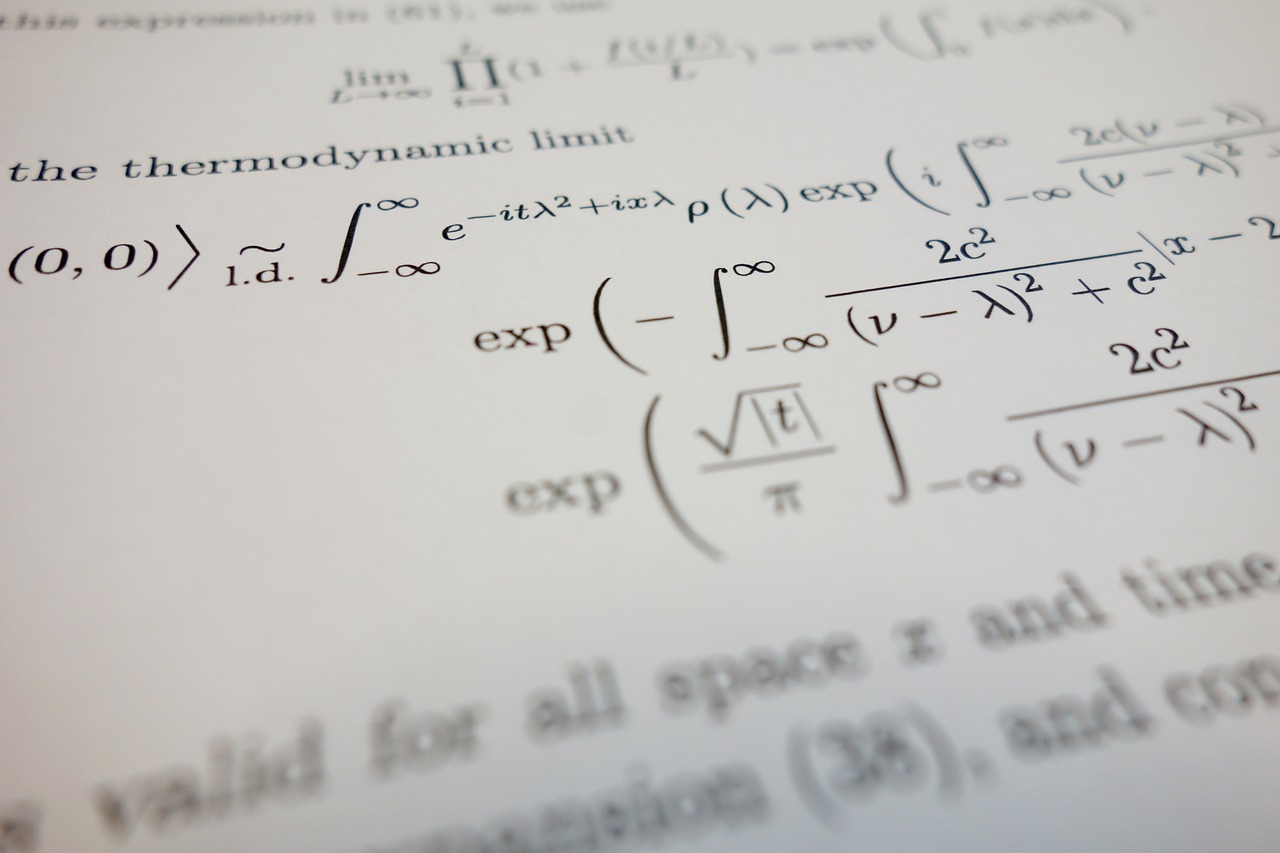
Philosophical Implications of Measurement
The act of measurement in quantum mechanics is not just a technical endeavor; it is a profound philosophical issue that challenges our understanding of reality itself. When we measure a quantum system, we are not merely observing it; we are actively participating in its existence. This raises important questions: What does it mean to measure something? Is the act of measurement an objective observation, or does it inherently alter the state of what is being measured? These questions lead us to explore the very nature of knowledge and reality.
To illustrate this, consider the famous thought experiment known as Schrödinger's cat. In this scenario, a cat is placed in a sealed box with a radioactive atom, a Geiger counter, and a vial of poison. Until we open the box and measure the system, the cat is considered to be both alive and dead, existing in a superposition of states. This paradox highlights a critical philosophical implication: the observer's role in defining reality. The act of measurement collapses the quantum state into one of the two outcomes, suggesting that reality is not a fixed entity but rather something that can be influenced by observation.
Furthermore, the implications of measurement extend into the realm of epistemology, which is the study of knowledge. In quantum mechanics, the uncertainty principle posits that certain pairs of properties, like position and momentum, cannot be simultaneously measured with arbitrary precision. This leads to a fundamental question: If we cannot know both properties at the same time, what does this say about our understanding of knowledge itself? Can we claim to have objective knowledge of a quantum system when our measurements are inherently limited?
Moreover, the philosophical implications of measurement also touch upon the concept of objectivity. In traditional science, measurements are expected to yield objective results independent of the observer. However, in quantum mechanics, the observer effect suggests that the very act of measurement can influence the outcome. This raises ethical considerations about how we approach scientific inquiry and the responsibility we bear as observers. Are we merely passive recipients of information, or do we play an active role in shaping the reality we study?
In conclusion, the philosophical implications of measurement in quantum mechanics are vast and complex. They challenge our understanding of reality, knowledge, and the role of the observer. As we delve deeper into the quantum realm, we must grapple with these questions and consider how they influence not only our scientific practices but also our broader philosophical perspectives.
- What is the observer effect in quantum mechanics? The observer effect refers to the phenomenon where the act of measuring a quantum system can alter its state, leading to questions about objectivity and reality.
- How does measurement relate to the concept of reality? Measurement in quantum mechanics suggests that reality is not a fixed entity but can be influenced by the act of observation, leading to philosophical debates about the nature of existence.
- What are the ethical implications of quantum measurement? The ethical implications revolve around the responsibility of scientists as observers and how their measurements may impact the systems they study.

Determinism vs. Indeterminism
When we dive into the realm of quantum mechanics, we find ourselves at a philosophical crossroads between determinism and indeterminism. Determinism, the idea that every event or state of affairs is determined by preceding events in accordance with the laws of nature, paints a picture of a universe governed by predictable patterns. Think of it like a well-oiled machine where every gear turns in perfect harmony, dictated by the rules of physics. In stark contrast, indeterminism suggests that not everything is preordained; instead, some events occur randomly or are influenced by probabilistic outcomes. Imagine a game of dice where the outcome is not fixed, but rather subject to chance and variability.
The implications of this dichotomy are profound. In classical physics, the universe was largely seen as deterministic, where if you knew the position and momentum of every particle, you could predict the future with absolute certainty. However, quantum mechanics throws a wrench into this neat machinery. With concepts like superposition and entanglement, particles do not have definite states until they are measured, leading to a reality that is inherently indeterminate. This raises the question: if the universe is not entirely predictable, what does that mean for our understanding of free will and causality?
To further illustrate this point, let’s consider a few key distinctions:
| Aspect | Determinism | Indeterminism |
|---|---|---|
| Nature of Events | All events are determined by prior states. | Some events occur randomly or without a predetermined cause. |
| Predictability | Future events can be predicted with certainty. | Future events may only be predicted probabilistically. |
| Philosophical Implications | Supports a mechanistic view of the universe. | Challenges notions of free will and objective reality. |
As we grapple with the implications of quantum mechanics, we must confront the philosophical debates that arise from this indeterministic nature. If events at the quantum level are not fixed, how does that influence our understanding of free will? Are we merely players in a cosmic game of chance, or do we possess the ability to influence outcomes through our choices? These questions not only challenge our perceptions of reality but also compel us to reconsider the foundations of ethics, responsibility, and the very nature of existence.
In conclusion, the tension between determinism and indeterminism in quantum mechanics is not just a scientific debate; it is a philosophical one that beckons us to reflect on the nature of reality itself. As we continue to explore the quantum realm, we may find that our understanding of the universe—and our place within it—remains as enigmatic as the particles we seek to understand.
- What is determinism? Determinism is the philosophical belief that all events, including moral choices, are determined completely by previously existing causes.
- What is indeterminism? Indeterminism is the idea that not all events are determined by preceding events, allowing for randomness and unpredictability.
- How does quantum mechanics relate to these concepts? Quantum mechanics introduces indeterminism through phenomena like superposition and entanglement, suggesting that outcomes cannot always be predicted with certainty.
- What are the implications for free will? The debate between determinism and indeterminism raises important questions about free will, suggesting that if the universe is not entirely predictable, our choices may not be entirely predetermined either.

Interpretations of Quantum Mechanics
When we dive into the enigmatic world of quantum mechanics, we quickly find ourselves confronted with a plethora of interpretations that seek to explain the bizarre behavior of particles at the quantum level. Each interpretation acts like a different lens through which we can view reality, offering unique insights and philosophical implications. Imagine standing at a crossroads, where each path represents a distinct way of understanding the universe—some paths are well-trodden, while others are shrouded in mystery. Let's explore a few of these interpretations and see how they shape our understanding of existence.
One of the most famous interpretations is the Copenhagen interpretation, which posits that quantum particles do not have definite properties until they are observed. This idea challenges our traditional understanding of reality, suggesting that the act of observation is not merely passive but actively shapes the state of what we observe. It's a bit like watching a movie; the film exists in a specific way, but your experience of it changes based on your perspective. In this interpretation, reality is inherently probabilistic, leaving us questioning the very nature of existence.
On the other hand, we have the Many-Worlds interpretation, which takes a radically different approach. According to this view, every time a quantum event occurs, the universe splits into multiple branches, each representing a different outcome. Picture a vast tree with countless branches; each decision or event leads to a new path, creating a multiverse of possibilities. This interpretation not only challenges our understanding of reality but also raises profound questions about free will and the nature of choice. If every possibility exists simultaneously, what does that mean for our understanding of causality?
Another intriguing perspective is the Pilot-Wave theory, which introduces the concept of hidden variables. This interpretation suggests that particles have definite positions and velocities, guided by a 'pilot wave.' In essence, it attempts to restore a sense of determinism to quantum mechanics, contrasting sharply with the randomness inherent in other interpretations. Imagine a ship navigating through fog; while the path may seem uncertain, there is an underlying current guiding its journey. This theory offers a more classical view of reality, yet it still grapples with the complexities of quantum phenomena.
To further illustrate these interpretations, consider the following table that summarizes their key features:
| Interpretation | Key Concept | Philosophical Implications |
|---|---|---|
| Copenhagen | Observation affects reality | Challenges objectivity and reality |
| Many-Worlds | Multiple universes exist | Questions free will and causality |
| Pilot-Wave | Hidden variables guide particles | Restores determinism in quantum mechanics |
As we explore these interpretations, it becomes clear that quantum mechanics is not just a scientific endeavor but a philosophical journey. Each interpretation invites us to reconsider our understanding of reality, existence, and the nature of knowledge. It's a fascinating interplay between science and philosophy, where questions often outweigh answers, leading us to ponder the very fabric of the universe.
So, what does it all mean for us? These interpretations challenge us to think deeply about our place in the cosmos. They force us to confront the limitations of our understanding and embrace the mystery that lies at the heart of quantum mechanics. In a world where certainty is elusive, perhaps it's the questions we ask that matter most.
- What is the Copenhagen interpretation? The Copenhagen interpretation suggests that quantum particles do not have definite properties until they are observed, leading to a probabilistic understanding of reality.
- What does the Many-Worlds interpretation imply? It implies that every quantum event leads to the creation of multiple universes, each representing different outcomes, challenging traditional notions of causality and free will.
- How does the Pilot-Wave theory differ from other interpretations? The Pilot-Wave theory introduces hidden variables, suggesting that particles have definite positions and velocities, restoring a sense of determinism to quantum mechanics.

Philosophy of Science and Quantum Theory
When we dive into the philosophy of science and its relationship with quantum theory, we find ourselves at the crossroads of inquiry and interpretation. This intersection is not merely an academic exercise; it’s a profound exploration of how we understand the universe. At its core, the philosophy of science seeks to answer fundamental questions about the nature of scientific inquiry itself. What does it mean to know something? How do we construct knowledge in a world that often defies our classical intuitions? Quantum theory, with its strange behaviors and counterintuitive principles, challenges our traditional notions of knowledge and reality.
One of the most intriguing aspects of this relationship is how philosophical frameworks shape our understanding of quantum phenomena. For instance, the Copenhagen interpretation posits that quantum particles do not have definite states until they are observed, suggesting that the act of observation itself plays a crucial role in the unfolding of reality. This leads us to ponder: if our observation affects reality, what does that say about our role as observers? Are we mere bystanders, or do we actively participate in the creation of reality? Such questions are not just theoretical; they have real implications for how we conduct scientific research and interpret results.
The interplay between philosophy and quantum theory also raises significant epistemological questions. Epistemology, the study of knowledge, becomes particularly relevant when we consider the implications of quantum mechanics. In traditional science, knowledge is often viewed as a reflection of an objective reality. However, quantum mechanics invites us to rethink this perspective. The uncertainty principle, for example, suggests that there are fundamental limits to what we can know about a system. This leads to a more nuanced view of knowledge, one that acknowledges the limitations and uncertainties inherent in our understanding of the quantum world.
Furthermore, the philosophy of science urges us to consider the ethical implications of advancements in quantum technology. As we stand on the brink of a quantum revolution, with developments in quantum computing and quantum cryptography, we must ask ourselves: what responsibilities do we have as scientists and citizens? The potential for quantum technology to revolutionize industries is immense, but so too are the ethical dilemmas it presents. For instance, how do we ensure that these powerful tools are used for the greater good? How do we navigate the moral landscape of technological advancement?
In conclusion, the philosophy of science and quantum theory are deeply intertwined, each informing and challenging the other. As we continue to explore the mysteries of the quantum realm, we must remain vigilant in considering the philosophical implications of our findings. The questions we ask and the frameworks we use to interpret our results will shape not only our understanding of the universe but also the ethical landscape of our future.
- What is the relationship between philosophy and quantum physics? Philosophy provides the conceptual framework that helps us interpret the often counterintuitive findings of quantum physics.
- How does quantum theory challenge traditional notions of reality? Quantum theory introduces concepts like superposition and entanglement, suggesting that reality is not as straightforward as classical physics implies.
- What are the ethical implications of quantum technology? As quantum technologies advance, ethical considerations arise concerning their use and potential impact on society.
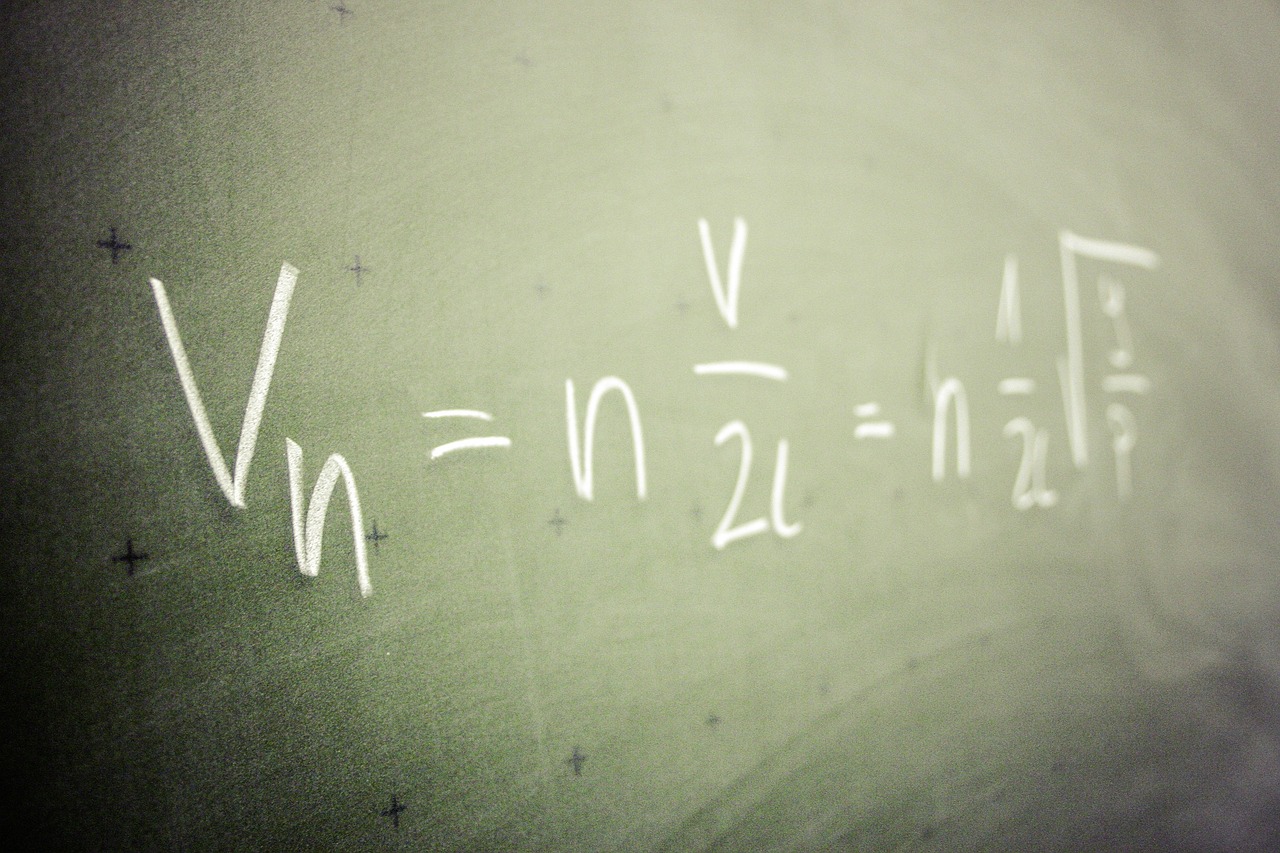
Epistemology and Quantum Physics
When we dive into the realm of quantum physics, we quickly realize that it's not just a playground for physicists; it's also a rich field for epistemological inquiry. Epistemology, the study of knowledge and justified belief, raises some intriguing questions when applied to the peculiarities of quantum mechanics. For instance, how do we know what we know in a world where particles can exist in multiple states at once? This is where things get really interesting, as quantum phenomena challenge our traditional notions of knowledge and observation.
At the heart of this discussion lies the concept of measurement. In classical physics, measurement seems straightforward: you observe an object, and you gain knowledge about its state. However, in quantum physics, the act of measuring a particle fundamentally alters its state. This leads us to ponder: can we truly claim to know something if our observation changes it? It's like trying to catch a glimpse of a shadow that dances and shifts every time you look at it. The implications for epistemology are profound, suggesting that our understanding of reality is not merely a passive reception of information but an active, dynamic interaction with the world.
Furthermore, the Copenhagen interpretation posits that until a measurement is made, particles exist in a state of superposition, meaning they can be in multiple states simultaneously. This raises the question: does knowledge exist independently of observation? Or is knowledge a construct that emerges only when we engage with the quantum world? In essence, the reality we perceive may be a tapestry woven from our interactions with these elusive particles, rather than a fixed state waiting to be uncovered.
To illustrate the interplay between epistemology and quantum physics, consider the following table that summarizes key epistemological questions raised by quantum mechanics:
| Question | Implication |
|---|---|
| What is the nature of reality? | Reality may be observer-dependent, challenging objective truths. |
| How do we acquire knowledge? | Knowledge may be constructed through interaction, not merely observation. |
| Can we trust our observations? | Observations can alter the state of what is being measured, complicating claims of knowledge. |
As we navigate these questions, it becomes evident that quantum physics doesn't just reshape our understanding of the physical world; it also compels us to re-evaluate the very foundations of what we consider knowledge. In a universe where particles can be both here and there, and where our actions can influence outcomes, the quest for knowledge becomes a deeply philosophical journey. It's a reminder that the more we learn, the more we realize how much we don't know, and perhaps that's the most profound insight of all.
- What is epistemology? Epistemology is the branch of philosophy concerned with the nature and scope of knowledge.
- How does quantum physics challenge traditional knowledge? Quantum physics suggests that observation can alter the state of what is being studied, complicating our understanding of objective knowledge.
- What is the Copenhagen interpretation? The Copenhagen interpretation posits that particles exist in a state of superposition until they are measured, leading to questions about the nature of reality and knowledge.

Ethics in Quantum Technology
As we stand on the brink of a quantum revolution, the ethical implications of quantum technology loom large. From quantum computing to quantum cryptography, these advancements promise to reshape our world in ways we can hardly imagine. But with great power comes great responsibility, and it's crucial to navigate the ethical landscape carefully. One might ask, what are the moral responsibilities of scientists and technologists in this new era? The potential benefits of quantum technology are enormous, but so too are the risks associated with its misuse.
For instance, consider quantum computing. It has the potential to solve complex problems that classical computers cannot, which could revolutionize fields like medicine, finance, and logistics. However, this same power could also be harnessed for malicious purposes, such as breaking encryption that secures our personal and financial information. The ethical dilemma here is clear: how do we ensure that the benefits of quantum computing are realized while minimizing the risks? This question is not merely academic; it's a pressing concern for policymakers, technologists, and ethicists alike.
Moreover, as quantum technologies continue to develop, we must also consider the social implications. Who will have access to these technologies? Will they exacerbate existing inequalities, or can they be leveraged to promote greater equity? The potential for quantum technology to create a digital divide is significant, as those with access to advanced quantum resources could gain substantial advantages over those without. This raises important ethical questions about fairness and justice in the distribution of technological benefits.
Another critical aspect of the ethics in quantum technology is the issue of surveillance. Quantum cryptography promises unbreakable encryption, which could be a double-edged sword. On one hand, it protects sensitive information from prying eyes; on the other, it could enable even more sophisticated surveillance techniques that infringe on privacy rights. As we develop these technologies, we must ask ourselves: what kind of society do we want to create? The balance between security and privacy is delicate, and the choices we make now will have lasting implications.
To summarize, the ethical considerations surrounding quantum technology are complex and multifaceted. They encompass a range of issues, including:
- Accountability in the development and deployment of quantum technologies.
- The potential for misuse and the need for robust regulatory frameworks.
- Equity in access to quantum advancements.
- Privacy concerns related to surveillance and data security.
As we forge ahead into this quantum future, it is imperative that we engage in ongoing discussions about these ethical dilemmas. By fostering a culture of responsibility and foresight, we can harness the transformative potential of quantum technology while safeguarding our values and principles.
- What is quantum technology? Quantum technology refers to the application of quantum mechanics principles to develop new technologies such as quantum computing, quantum cryptography, and quantum sensing.
- Why are ethics important in quantum technology? Ethics are crucial in quantum technology to ensure that advancements are used responsibly, equitably, and do not infringe on individual rights or societal norms.
- How can we address the risks associated with quantum computing? Establishing regulatory frameworks, promoting ethical research practices, and ensuring equitable access to technology can help mitigate risks.
- What are the potential benefits of quantum technology? Quantum technology can lead to breakthroughs in various fields, including medicine, communications, and materials science, offering solutions to complex problems.
Frequently Asked Questions
- What is the relationship between philosophy and quantum physics?
The relationship between philosophy and quantum physics is deeply intertwined. Philosophy provides a framework for understanding the fundamental questions that arise from quantum mechanics, such as the nature of reality, observation, and existence. Philosophers have long pondered the implications of quantum theories, influencing how we interpret the strange behaviors observed in quantum systems.
- How do philosophical concepts shape our understanding of quantum mechanics?
Philosophical concepts shape our understanding of quantum mechanics by challenging traditional views of reality. For example, ideas about determinism and free will are reexamined in light of quantum indeterminism, prompting us to rethink what we know about causality and the nature of knowledge itself. Philosophers like Niels Bohr and Werner Heisenberg have contributed significantly to this dialogue, providing insights that bridge science and philosophy.
- What is the observer effect in quantum physics?
The observer effect refers to the phenomenon where the act of measurement affects the state of a quantum system. This raises profound philosophical questions about objectivity and knowledge—is it possible to know something without altering it? The implications of this effect challenge our understanding of reality, suggesting that observation is not a passive act but an active participant in shaping outcomes.
- What are some interpretations of quantum mechanics?
There are several interpretations of quantum mechanics, each providing unique philosophical insights. The Copenhagen interpretation suggests that particles exist in a state of probability until observed, while the many-worlds theory posits that all possible outcomes occur in parallel universes. These interpretations highlight the complexities of reality and challenge our understanding of existence, raising questions about which, if any, is the "true" representation of the quantum world.
- How does quantum mechanics challenge traditional notions of reality?
Quantum mechanics challenges traditional notions of reality by introducing concepts like superposition and entanglement, which defy classical logic. For instance, particles can exist in multiple states at once until they are measured, suggesting that reality is not as straightforward as it seems. This complexity forces us to reconsider our definitions of existence and the nature of the universe.
- What ethical considerations arise from advancements in quantum technology?
Advancements in quantum technology, such as quantum computing and cryptography, raise significant ethical considerations. Issues like data privacy, security, and the potential for misuse of powerful technologies demand a careful examination of moral responsibility. As we push the boundaries of what quantum technologies can achieve, we must also navigate the ethical landscape they create, ensuring that progress benefits society as a whole.
- What role does epistemology play in quantum physics?
Epistemology, the study of knowledge, plays a crucial role in quantum physics by addressing how we construct knowledge in the context of quantum theories. It prompts us to ask questions about the nature of scientific inquiry and the validity of our knowledge claims. As quantum mechanics challenges our understanding of observation and reality, epistemological considerations become essential in interpreting quantum phenomena.




